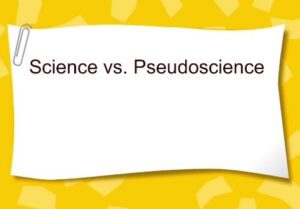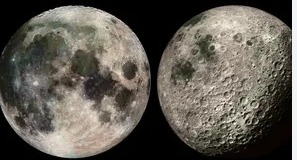
Science and pseudo-science represent two distinct categories of knowledge, each characterized by its methodology, principles, and approach to understanding the world. Here are key differences between the two:-
Science Category
Empirical Basis
- Science: Relies on empirical evidence and observations. Scientific theories and hypotheses are tested through experimentation and observation.
- Example: The theory of evolution is supported by a vast body of empirical evidence from various scientific disciplines.
Methodology:
- Science: Follows the scientific method, involving systematic observation, experimentation, and the formulation of testable hypotheses.
- Example: Physics experiments to test the laws of motion or chemistry experiments to analyze chemical reactions.
Falsifiability:
- Science: Emphasizes falsifiability, meaning that scientific claims can be proven false through experimentation or observation.
- Example: Theories in physics are subject to being proven false if experiments or observations contradict them.
Also Read: Tips For Students To Write Resume
Peer Review:
- Science: Research is subjected to peer review, where experts in the field evaluate the methodology and conclusions before publication.
- Example: Academic journals ensure that scientific papers meet rigorous standards.
Progressive Nature:
- Science: Evolves and progresses as new evidence emerges. Theories can be revised or replaced based on new findings.
- Example: The development of quantum mechanics as a refinement of classical physics.
Pseudo-science Category
Lack of Empirical Support:
- Pseudo-science: Lacks strong empirical evidence and often relies on anecdotal or unverified claims.
- Example: Astrology, which claims to predict personality traits and events based on the positions of celestial bodies.
Unsystematic Methodology:
- Pseudo-science: Often lacks a systematic and rigorous methodology for testing hypotheses.
- Example: Claims of paranormal phenomena that are not subject to controlled experiments.
Also read: How AI Is Much Better In Evolution Than Revolution
Unfalsifiability:
- Pseudo-science: May not be easily falsifiable, as proponents often make their claims resistant to testing or questioning.
- Example: Some conspiracy theories that are constructed in a way that makes them difficult to disprove.
Lack of Peer Review:
- Pseudo-science: Often lacks rigorous peer review processes, and claims may not be subjected to critical evaluation by experts.
- Example: Many self-help or alternative medicine practices without scientific validation.
Resistance to Change:
- Pseudo-science: Tends to resist revision or abandonment in the face of contradictory evidence.
- Example: Some pseudoscientific beliefs persist despite being debunked by scientific evidence.
It’s important to critically evaluate claims and differentiate between scientific and pseudo-scientific practices to foster a better understanding of the natural world. Scientific literacy is a valuable skill in distinguishing between evidence-based knowledge and unfounded beliefs.
Also Read: Is It Possible To Crack SSC CGL Exam With UPSC Coaching?








